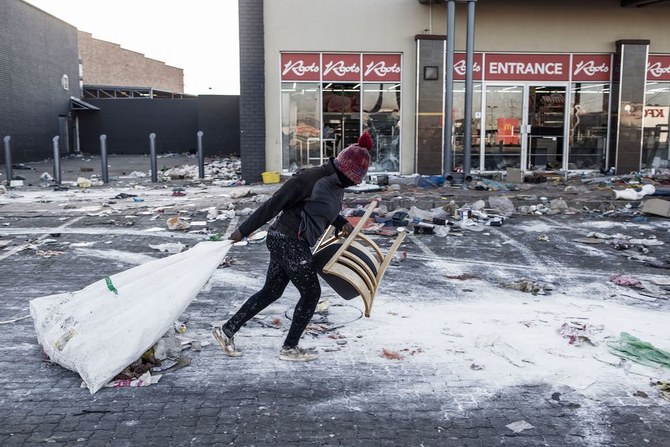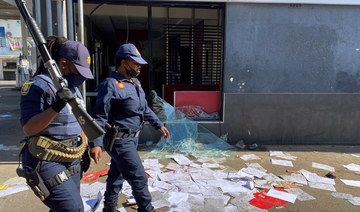LONDON: Following days of violent protests, the South African government has turned to tracing social media platforms for content that incites violence on Wednesday to crack down on demonstrators and spiralling unrest.
The government urged social media platforms such as Facebook and Twitter to trace and remove posts of those inciting violence and looting.
Prompted by the jailing of former President Jacob Zuka, protests erupted in the country last week as frustrations aggravated over poverty, corruption and inequality. Protests soon turned violent and left more than 72 people dead and a further 1,300 in prison.
Current President Cyril Ramaphosa described the situation in the country as the worst protests since the end of apartheid.
According to the South African police minister, Bheki Cele, a group of ministers are “monitoring all social media platforms and we are tracking those who are sharing false information and calling for civil disobedience.”
Using social media platforms as means to contain violence is not new. In Cuba, a similar decision by the government restricted access to social media sites including Facebook, Instagram, WhatsApp and Telegram as anti-government protests erupted.
Countries across Africa, such as eSwatini, Senegal, Nigeria, Uganda, Niger, and the DRC, have increasingly been using tracking software, internet shutdowns and social media monitoring during protests and elections.
Africa Check, a fact-checking organization, indicated that some of the videos and pictures shared on social media to depict the South African protests are actually from other countries.
A similar phenomenon recently took place during May’s resurgence of the Palestine-Israel conflict, where social media platforms flagged several photos with a “media manipulation warning” and “false information” as those photos were depicting entirely different contexts.
One warning was on a video posted by a spokesperson for Israeli Prime Minister Benjamin Netanyahu supposedly showing Hamas firing rockets towards Israel during the latest round of violence. The clip was in fact posted on YouTube in 2018 and the description said it was filmed in the Syrian city of Daraa.













